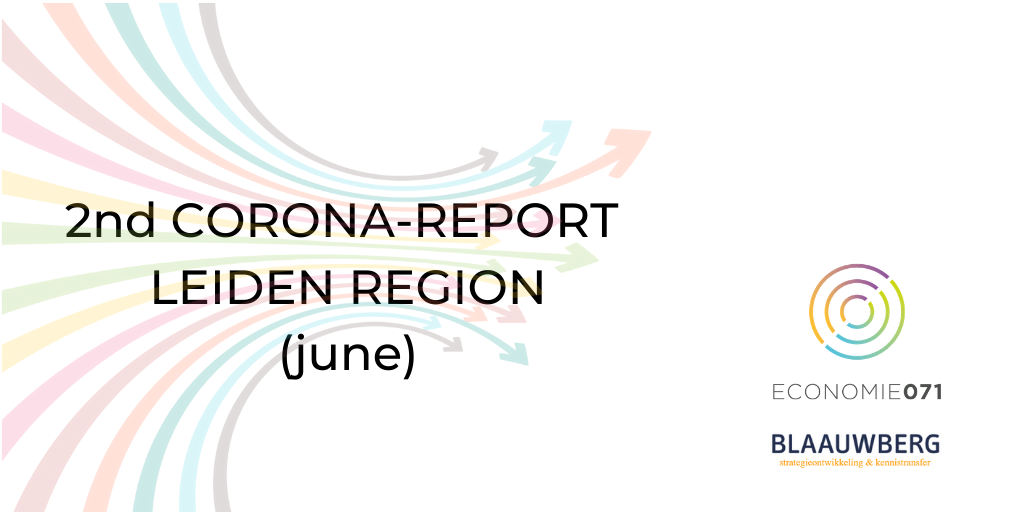
The Leiden region is preparing for two major crisis years, but it can emerge stronger from the crisis due to its special knowledge profile. This is evident from the second report of the corona crisis that Bureau Blaauwberg has prepared on behalf of Economie071. It is a refinement of the content and figures from the first study. The report also contains a comprehensive overview of the expected economic, spatial and political effects in the short and longer term.
From generic to specific
The figures from the survey show that the Leiden region has reasonably passed the phase of lockdown in economic terms. Regionally, 19.8% of all companies with employees have used wage compensation via the NOW (emergency measures employment). This number is slightly lower than the national average of 23.5%. However, the increase in the number of unemployment benefits is still limited. This has to do with the national support package. This support policy is expected to change as the crisis progresses – from generic to specific. From supporting all companies, towards supporting the most viable companies.
Recovery and perspective
A current sector analysis shows that the corona impact can still be felt in various sectors. However, the first signs of recovery and new perspectives have become visible. According to researchers, a full economic recovery will only start when the spread of the virus is under control. This scenario, has been confirmed by epidemiologists and researchers and will be feasible in the next 2 years. According to Bureau Blaauwberg, even though a vaccine can speed up that process, a massive and extensive mobility remains a “no go” during that period.
Maintain dynamics
The researchers believe that the Leiden region has a significant advantage in maintaining dynamism during and after that two-year period. The leading medical cluster, education and knowledge institutes continue to attract young talent. The challenge for the Leiden region will be to continue to preserve this “chicken with the golden eggs”. Therefore, the region needs to continue stimulating the arrival of young people to the city and region. However, researchers warn adverse effects that the crisis may have on the regional municipalities around Leiden. With the increasing habituation to work from home, the need to live at a short distance from work has disappeared. On the other hand, according to bureau Blaauwberg, the high-quality residential environments at a considerable distance such as Veluwe, Drenthe, Friesland can become the focus of the housing market.
Long term trends
In the long term, the analysis shows that the corona crisis accelerates various trends. Low-skilled routine work is rapidly disappearing while pressure on human competences and a higher level of education continue to increase. The collaboration between companies is becoming even more important. The demand for flexible real estate is increasing too. The shopping areas are going to change their branding: more mixed functions, more temporary concepts, more services and less equipment sales.
Also read the first report.
